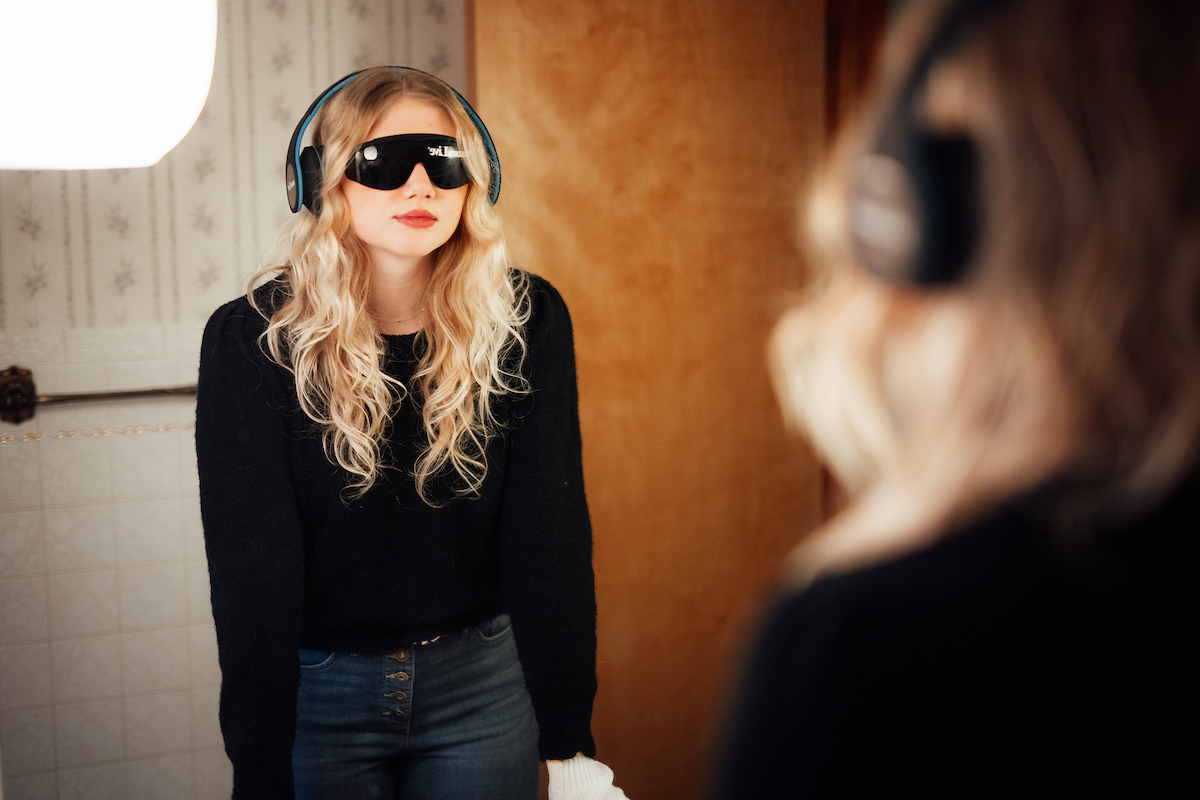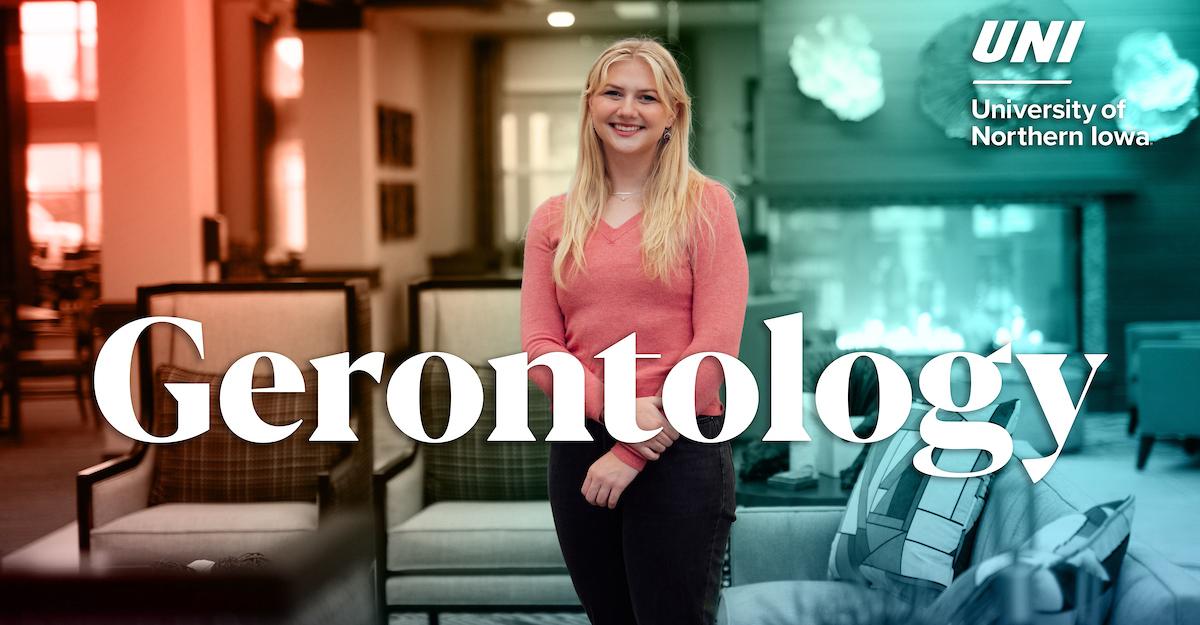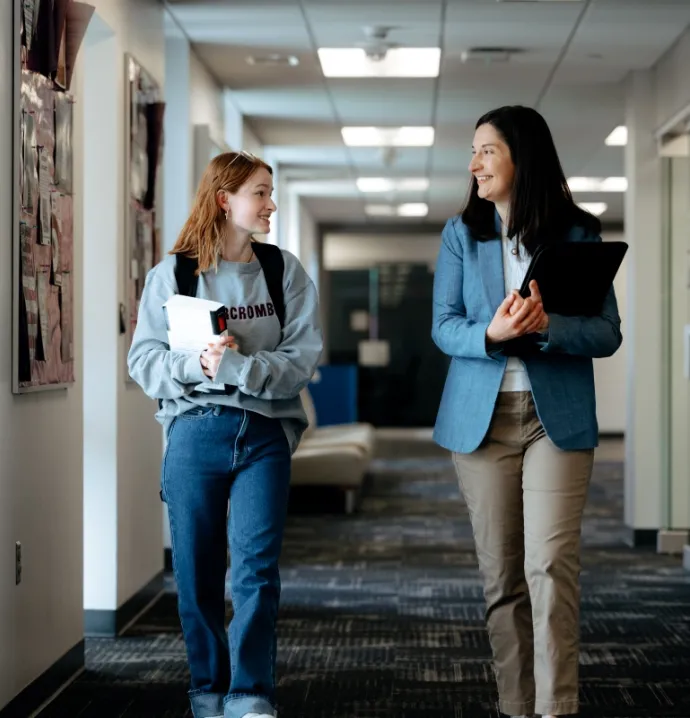Cedar Valley community learns about dementia through UNI dementia simulation house
Cedar Valley community learns about dementia through UNI dementia simulation house

While the aging population can often seem like a forgotten group in society, the University of Northern Iowa is trying to change that. Not only does UNI have the state’s only four-year gerontology program, but it also has a unique dementia simulation — the only one in the Midwest to take place in an entire house — located on the edge of campus.
UNI’s gerontology program has brought the campus and community this educational experience on what it’s like to live with dementia, which opened in February 2022.
Many of the participants who come to the house are family caregivers who want to understand what their loved ones are facing. Others are students who are pursuing healthcare, gerontology, speech-language pathology or psychology.
One student who got the chance to experience the simulation recently is second-year graduate student Meleah Cue who is studying clinical mental health counseling. She was interested in going through the simulation both because her grandma has dementia and also because she has considered working with the aging population in the future.
“I really do feel like it's eye-opening in that this could be what a loved one is dealing with or this could be something that you might be dealing with in the future, and it has made it a bit less scary for me,” said Cue.
Cue believes the simulation increased her compassion for others who are living with any illness or disability, not just dementia.
“I think that, particularly in Western societies, we look at this disability as a life ender, but it's just a different way to live,” said Cue.
What exactly happens inside the dementia simulation? This is something Elaine Eshbaugh, professor of gerontology at UNI who oversees the house, keeps under wraps to preserve the authenticity of the experience.
“When people come in, I’m very open with them,” said Eshbaugh. “I tell them they’re going to have goggles, headphones and gloves and we’re going to ask them to live like someone who has dementia.”
While many simulation participants have a connection to someone with dementia either personally or professionally, Eshbaugh said that isn’t the case for everyone.
“Sometimes we get someone in the community who just hears about us and says, ‘I like to learn. I really don't know anybody with dementia, but this sounded interesting’,” Eshbaugh said. “I love those people. Because really, this is about community. I want people with dementia to live and thrive in the community for as long as possible.”
Eshbaugh’s passion for the aging population started as a child when her mom worked in a nursing home and Eshbaugh spent time in her mom’s workplace. Eshbaugh describes the people in the nursing home who had dementia as her childhood best friends.
While dementia simulations are not uncommon, said Eshbaugh, they are usually more transportable, getting torn down and set up from one location to the next.
“My initial dream was to get two dorm rooms where we could do a simulation in one and a kind of debriefing in the other,” she said. “I thought that was the best I could do, and I would have been really excited with that. But, for me, the problem is that it kind of implies people with dementia live in just a room like in a hospital or a nursing home.”
Eshbaugh went on to say that 80 percent of people living with dementia live at home in the community, making the residential setting of this simulation more realistic. However, Eshbaugh has never heard a simulation on this scale happening anywhere else.
Prior to the simulation’s opening in February, the community donated almost everything to furnish the home and, as Eshbaugh puts it, make it “appropriately cluttered.”
“Really, we don't want people to come in and say, ‘Oh, this looks like a dementia simulation house’,” she said. “We want people to come in and say, ‘Oh, this looks like my mom's house or my aunt’s house or the house I live in’.”
Each session takes about 45 minutes, and up to four guests may go through at once. The dementia simulation house has had no trouble filling up openings, as they have brought in 30 to 40 people each week.
“Running this house could easily be a full-time job, but I still have to do all the things I did before it opened,” she said.
At the end of the simulation, each participant is asked to capture the experience using a word or phrase on a piece of wood that’s shaped like a brain. All these wooden “brains” are collected in a jar that stays at the house. Some past simulation goers have written things like “noise,” “sense of loss,” “worried,” “dumb,” “overwhelming,” “slow” and “crazy.”
While the dementia simulation is one way to become educated on dementia, it’s far from the only way, which is the focus of the work being done by Megan Zimmerman, ‘20. Zimmerman works for the Northeast Iowa Area Agency on Aging, a nonprofit organization coordinating services that help individuals maintain independence as they age.
Zimmerman is also a gerontology alum who chose to come to UNI because it has the only four-year gerontology program in the state. Now she coordinates a program called Dementia Friends Iowa, which is available to anyone who wants to learn more about dementia including communication strategies and community resources.
“People want to be kind, but when it comes to helping someone with dementia, they don't always know how to do it well,” said Zimmerman. “So by equipping them with a little bit more of an understanding of what it's like to have dementia and then also equipping them with some communication strategies, we hope that people will walk towards someone with dementia rather than walking away.”
Even before the house’s opening, Eshbaugh and Zimmerman had been working together on the Dementia Friendly Cedar Valley initiative to educate people on dementia. Using the house as another educational tool for people who are interested in becoming a Dementia Friend seemed like a natural fit, said Eshbaugh.
“People with dementia are directly and negatively impacted when people around them don't understand dementia,” Zimmerman explained. “So when you make sure that people understand dementia a little bit more and just some basics of how to communicate with someone with dementia, it really improves the quality of life for people with dementia.”
Zimmerman said there is no shortage of misconceptions when it comes to dementia, starting with the fact that dementia is more than memory loss. For example, it may impact someone’s motor skills and ability to focus, which the house helps simulate. She also said that people living with dementia have a lot to contribute to society. In fact, her program benefits from people with dementia who volunteer.
Ultimately, Zimmerman said that the dementia simulation house and the Dementia Friendly Cedar Valley initiative have a common goal.
“I hope to increase people's empathy towards people with dementia, and then decrease the stigma surrounding dementia,” she said.





